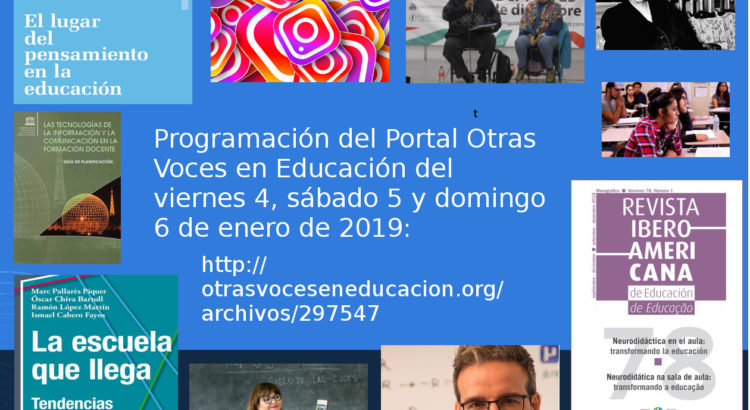U. S / January 4, 2019 / Author: Henry A. Giroux / Source: Arts & Opinion
Marx was certainly right in arguing that the point is not to understand the world but to change it, but what he underemphasized was that the world cannot be transformed if one does not understand what is to be changed. As Terry Eagleton rightly notes “Nobody can change a world they didn’t understand.” Moreover, the lack of mass resistance to oppression signals more than apathy or indifference, it also suggests that we don’t have an informed and energizing vision of the world for which we want to struggle. Political struggle is dependent on the political will to change, which is central to any notion of informed agency willing to address the radical and pragmatic issues of our time. In addition to understanding the world, an informed public must connect what they know and learn to the central task of bringing their ideas to bear on society as a whole. This means that a critical consciousness must be matched by a fervent willingness to take risks, and challenge the destructive narratives that are seeping into the public realm and becoming normalized.
Any dissatisfaction with injustice necessitates combining the demands of moral witnessing with the pedagogical power of persuasion and the call to address the tasks of emancipation. We need individuals and social movements willing to disturb the normalization of a fascist politics, oppose racist, sexist, and neoliberal orthodoxy.
As Robin D. G. Kelley observes we cannot confuse catharsis and momentary outrage for revolution. In a time of increasing tyranny, resistance in many quarters appears to have lost its usefulness as a call to action. At the same time, the pedagogical force of civic ignorance and illiteracy has morphed into a national ideal. Tyranny and ignorance feed each other in a theater of corporate controlled media ecosystems and function more as a tool of domination than as a pedagogical outlet in pursuit of justice and the practice of freedom. Under such circumstances, when education is not viewed as central to politics itself, resistance withers in the faux language of privatized struggles and fashionable slogans.
For instance the novelist Teju Cole has argued that “‘resistance’ is back in vogue, and it describes something rather different now. The holy word has become unexceptional. Faced with a vulgar, manic and cruel regime, birds of many different feathers are eager to proclaim themselves members of the Resistance. It is the most popular game in town.” Cole’s critique appears to be born out by the fact that the most unscrupulous of liberal and conservative politicians such as Madeline Albright, Hilary Clinton, and even James Clapper, the former director of national intelligence, are now claiming that they have joined the resistance against Trump’s fascist politics. Even Michael Hayden, the former NSA chief and CIA director under George W. Bush, has joined the ranks of Albright and Clinton in condemning Trump as a proto-fascist. Writing in the New York Times, Hayden, ironically, chastised Trump as a serial liar and in doing so quoted the renowned historian Timothy Snyder, who stated in reference to the Trump regime that “Post-Truth is pre-fascism.” The irony here is hard to miss. Not only did Hayden head Bush’s illegal National Security Agency warrantless wiretapping program while the head of the NSA, he also lied repeatedly about his role in Bush’s sanction and implementation of state torture in Afghanistan and Iraq.
This tsunami of banal resistance and its pedagogical architecture was on full display when an anonymous member of the Trump’s inner circle published an op-ed in the New York Times claiming that he/she and other senior officials were part of “the resistance within the Trump administration.” The author was quick to qualify the statement by insisting such resistance had nothing to do with “the popular ‘resistance’ of the left.” To prove the point, it was noted by the author that the members of this insider resistance liked some of Trump’s policies such as “effective deregulation, historic tax reform, a more robust military and more.” Combining resistance with the endorsements of such reactionary policies reads like fodder for late-night comics.
The Democratic Party now defines itself as the most powerful political force opposing Trump’s fascist politics. What it has forgotten is the role it has played under the Clinton and Obama presidencies in creating the economic, political, and social conditions for Trump’s election in 2016. Such historical and political amnesia allows them to make the specious claim that they are now the party of resistance. Resistance in these instances has little to do with civic courage, a defense of human dignity, and the willingness to not just bear witness to the current injustices but to struggle to overcome them. Of course, the issue is not to disavow resistance as much as to redefine it as inseparable from fundamental change that calls for the overthrow of capitalism itself. Neoliberalism has now adopted unapologetically the language of racial cleansing, white supremacy, white nationalism, and fascist politics. Unapologetic for the widespread horrors, gaping inequality, destruction of public goods, and re-energizing of the discourse of hate and culture of cruelty, neoliberalism has joined hands with a toxic fascist politics painted in the hyper-patriotic colors of red, white, and blue. As I have noted elsewhere:
Neoliberalism’s hatred of democracy, the common good, and the social contract has unleashed generic elements of a fascist past in which white supremacy, ultra-nationalism, rabid misogyny and immigrant fervor come together in a toxic mix of militarism, state violence, and a politics of disposability. Modes of fascist expression adapt variously to different political historical contexts assuring racial apartheid-like forms in the post-bellum U.S. and overt encampments and extermination in Nazi Germany. Fascism with its unquestioning belief in obedience to a powerful strongman, violence as a form of political purification, hatred as an act of patriotism, racial and ethnic cleansing, and the superiority of a select ethnic or national group has resurfaced in the United States. In this mix of economic barbarism, political nihilism, racial purity, economic orthodoxy, and ethical somnambulance a distinctive economic-political formation has been produced that I term neoliberal fascism.
While the call to resist neoliberal fascism is to be welcomed, it has to be interrogated rather than aligned with individuals and ideological forces that helped put in place the racist, economic, religious, and educational forces that helped produce it. What many liberals and conservative calls to resistance have in common is an opposition to Trump rather than to the conditions that created him. In some cases, liberal critics such as Christopher R. Browning, Yascha Mounk, and Cass R. Sunstein document insightfully America’s descent into fascism but are too cautious in refusing to conclude that we are living under a fascist political regime. This is more than a retreat from political courage, it is a refusal to name how liberalism itself with its addiction to the financial elite has helped create the conditions that make a fascist politics possible.
Trump’s election and the Kavanaugh affair make clear that what is needed is not only a resistance to the established order of neoliberal capitalism but a radical restructuring of society itself. That is not about resisting oppression in its diverse forms but overcoming it — in short, changing it. The Kavanaugh hearings and the liberal response was a telling example of what might be called a politics of disconnection.
While it is crucial to condemn the Kavanaugh hearings for its blatant disregard for the Constitution, expressed hatred of women, and its symbolic expression and embrace of white privilege and power, it is necessary to enlarge our criticism to include the system that made the Kavanaugh appointment possible. Kavanaugh represents not only the deep seated rot of misogyny but also as Grace Lee Boggs, has stated “a government of, by, and for corporate power.” We need to see beyond the white nationalists and neo-Nazis demonstrating in the streets in order to recognize the terror of the unforeseen, the terror that is state sanctioned, and hides in the shadows of power. Such a struggle means more than engaging material relations of power or the economic architecture of neoliberal fascism, it also means taking on the challenge producing the tools and tactics necessary to rethink and create the conditions for a new kind of subjectivity as the basis for a new kind of democratic socialist politics. We need a comprehensive politics that brings together various single interest movements so that the threads that connect them become equally as important as the particular forms of oppression that define their singularity. In addition, we need intellectuals willing to combine intellectual complexity with clarity and accessibility, embrace the high stakes investment in persuasion, and cross disciplinary borders in order to theorize and speak with what Rob Nixon calls the “cunning of lightness” and a “methodological promiscuity” that keeps language attuned to the pressing the claims for justice.
Outside of those intellectuals who write for CounterPunch, Truthout, Truthdig, Rise Up Times, Salon, and a number of other critical media outlets, there are too few intellectuals, artists, journalists willing to challenge the rise of an American version of neoliberal fascism. It is not enough to report in an alleged “balanced fashion” on Trump’s endorsement of violence against journalists, the massive levels of inequality produced under neoliberalism, the enactment by the Trump administration of savage policies of racial cleansing aimed at undocumented immigrants, and the emergence of a police state armed terrifying new technologies aimed at predictive policing. The real challenge is to tie these elements of oppression together and to recognize the threads of state violence, white supremacy, and fascist politics that suggest the emergence of a distinctive new political order.
Shock and outrage in the midst of a fascist politics is now undermined by the mainstream press which is always on the hunt for higher ratings and increasing their bottom line. Rather than talk about fascism, they focus on the threat to liberal institutions. Rather than talk about the mounting state violence and the increased violence of neo-fascist thugs such as the Proud Boys, they talk about violence coming from the left and right. Rather than raise questions about the conditions and a society in which more and more people seem to prefer authoritarian rule over democracy, they talk about Trump’s eccentric behavior or keep tabs on his endless lying. This is not unhelpful, but it misses the nature of the true threat, its genesis, and the power of a corporate elite who are now comfortable with the fascist politics that Trump embodies.
An iPsos poll found that “a surprising 26 percent of all Americans, and 43 percent of Republicans, agree with the statement that the president “should have the authority to close news outlets engaged in bad behavior.” In addition, a majority of Americans across the ideological spectrum — 72 percent — think “it should be easier to sue reporters who knowingly publish false information.” Couple this with the fact that Trump has recently stated privately to his aids that he regrets reversing his policy of separating children from their parents at the border and you have a mix of fascist principles coupled with a dangerous demagogue who cannot bring the country fast enough to the fascist abyss. While it is true that the United States under Trump is not Hitler’s Germany, Trump has tapped into America’s worst impulses and as Jason Stanley and others remind us his ultra-nationalism, white supremacist views, and racist diatribes coupled with his attack on immigrants, the media, African-Americans, and Muslims are indicative of a politics right out the fascist playbook. If the public and media keep denying this reality, the endpoint is too horrible to imagine. If we are to understand the current resurgence of right-wing populist movements across the globe, economic factors alone do not account for the current mobilizations of fascist passions.
As Pierre Bourdieu once put it, it is crucial to recognize that “the most important forms of domination are not only economic but also intellectual and pedagogical, and lie on the side of belief and persuasion.” He goes on to state that left intellectuals have underestimated the symbolic and pedagogical dimensions of struggle and have not always forged appropriate weapons to fight on this front.” In part, this means that the left and others must make matters of culture and pedagogy central to politics in order to address people’s needs and struggles. And they should do so in a language that is both rigorous and accessible. Matters of culture and consciousness in the Gramscian sense are central to politics and only when the left can address that issue will there be any hope for massive collective resistance in the form of a broad-based movement.
Trump has emboldened and legitimated the dire anti-democratic threats that have been expanding under an economic system stripped of any political, social, and ethical responsibility. This is a form of neoliberal fascism that has redrawn and expanded the parameters of the genocidal practices and hate filled politics of the 1930s and 40s in Europe in which it was once thought impossible to happen again. The threat has returned and is now on our doorsteps, and it needs to be named, exposed, and overcome by those who believe that the stakes are much too high to look away and not engage in organized political and pedagogical struggles against a fascist state and an omniscient fascist politics. We live in an age when the horrors of the past are providing the language and politics of illiberal democracies all over the globe. This is a world where dystopian versions of a catastrophic, misery producing neoliberalism merge with unapologetic death dealing visions of a fascist politics. We live in an era that testifies to the horrors of a past struggling to reinvent itself in the present, and which should place more than a sense of ethical and political responsibility on those of us bearing witness to it. As my friend, Brad Evans, notes under such circumstances, we live in a time “that asks us all to continually question our own shameful compromises with power,” and to act with others to overcome our differences in order to dismantle this assault on human rights, human dignity, economic justice, equality, and democracy itself.
Article Source:
http://www.artsandopinion.com/2018_v17_n6/giroux-26pedagogicalterrorism.htm
Source of the image:
When Schools Become Dead Zones of the Imagination
ove/mahv













 Users Today : 24
Users Today : 24 Total Users : 35460884
Total Users : 35460884 Views Today : 52
Views Today : 52 Total views : 3420183
Total views : 3420183